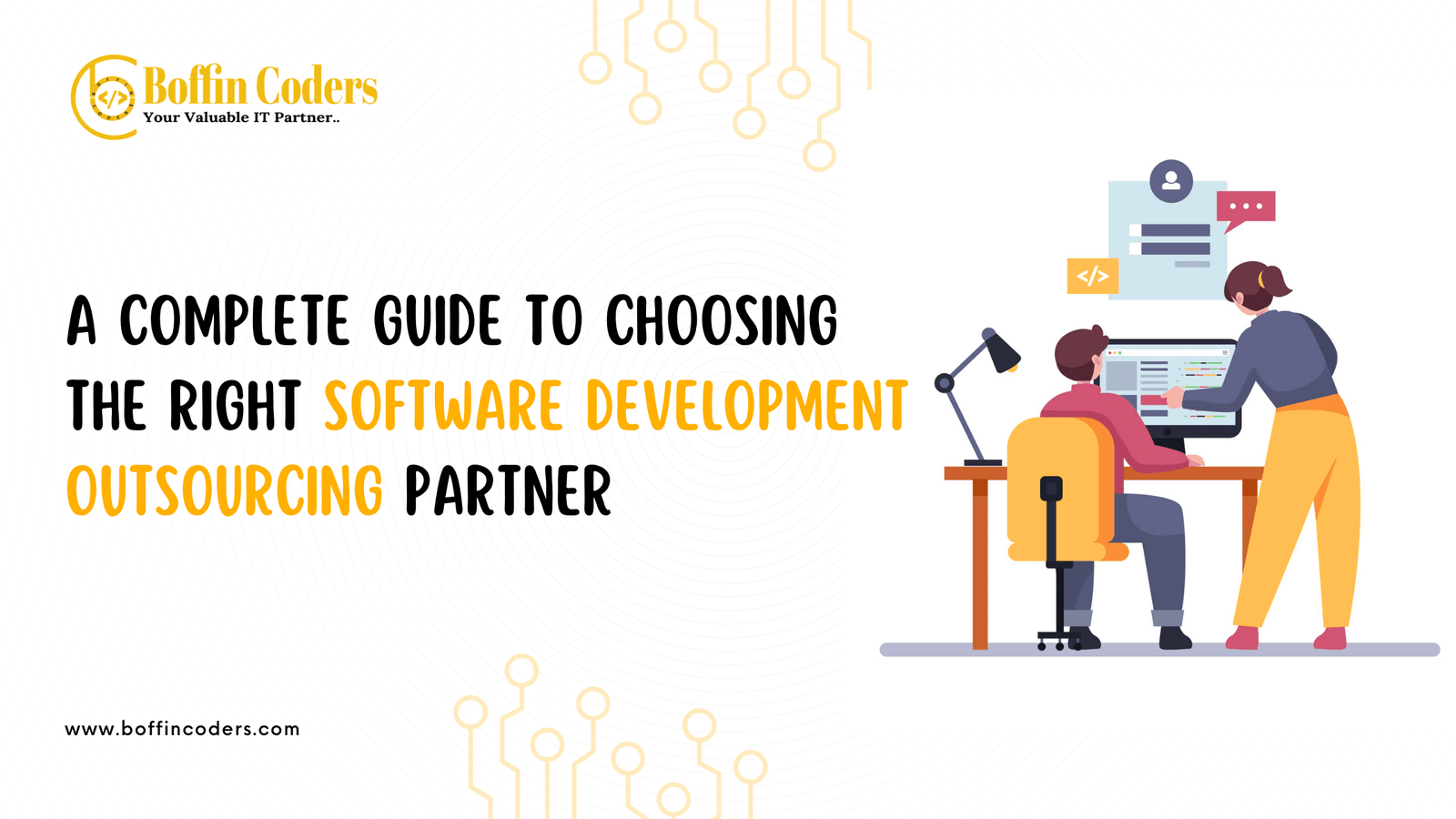Introduction
With rapid changes in the digital economy, businesses are increasingly pressed to supply high-quality software solutions sooner and at a lower cost. Companies of all sizes, from early-stage start-ups to large, established enterprises, are looking to software development outsourcing services to remain competitive.
Outsourcing can provide global access to talent, faster project turnaround, and an opportunity to lower overhead costs. The downside is choosing the right partner. The wrong provider can introduce barriers to communication, slow you down, and waste your investment. In this guide, you will learn decision-making strategies to choose an outsourcing partner that works for you.
Step 1: Identify Your Business Goals
Before engaging with any vendor, it is essential to define your objectives for outsourcing. Are you seeking specialized outsourcing developers to create a new product? Do you require continuous outsourcing web development assistance for your current applications? Alternatively, are you prioritizing cost savings while upholding quality? Establishing clear goals simplifies the process of evaluating potential partners and guarantees that you commence discussions with well-defined expectations.
Step 2: Assess Technical Competence
Choosing an outsourcing partner can be one of the most important decisions you will make. One of the most important factors is technical competency. There are different characteristics of providers, such as some providing only mobile app development, others enterprise or company-level solutions, and others web technologies.
Comfortable with the vendor’s process, it is reasonable to ask for case studies, project portfolios, and references as confirmation of the provider’s expertise. If your project is going to utilize more advanced technologies, such as cloud-native, artificial intelligence, or blockchain solutions, please be sure that the outsourcing provider has experience in these fields.
Step 3: Think About Communication and Culture Fit
Regardless of their expertise, outsourced developers are likely to encounter challenges associated with communication and collaboration. Barriers to effective communication may arise due to differences in time zones, language skills, and cultural practices, necessitating adjustments. Seek partners who align with your communication style and processes that clearly facilitate regular updates, feedback loops, and transparency. A good culture fit is likely to lead to a stronger long-term relationship and avoid misunderstandings.
Step 4: Check Scalability and Flexibility
Business requirements evolve swiftly. At this time, you might need a small team for outsourcing web development, but later you may find you need a larger team for end-to-end software development. A good outsourcing partner, such as Boffin Coders, has contractual terms, project management approaches, and staffing. This indicates a reliable and flexible outsourcing partner.
Step 5: Review Security and Compliance
You will share sensitive information and intellectual property when you outsource to a provider. You need to ensure that the provider can protect your information and follow strict data security guidelines and international guidelines. The provider should have good policies to protect your business information. You should also feel free to ask them about security certifications and data handling processes, as well as notices and agreements such as NDAs.
Step 6: Assess Cost Beyond the Price Tag
Cost savings are a significant reason companies are pursuing software development outsourcing services; however, sometimes just focusing on the lowest bid could hinder you. Take into consideration the value you are receiving. Things to consider include quality of talent, project management support, post-development maintenance, and long-term partnership opportunities. In this regard, paying a little more up front will ultimately provide better quality and fewer headaches at the end of the project.
Step 7: Test with a Pilot Project
If you are hesitant to enter into a substantial contract, it may be beneficial to initiate a pilot project. This approach enables you to assess the partner’s performance, communication skills, and capacity to meet established deadlines. A successful pilot project fosters trust and establishes the groundwork for a lasting partnership.
Conclusion
Selecting the right partner for software development outsourced services is not a decision to be taken lightly. You need to do the planning, assess service providers, and clearly communicate what you are looking for. Overtly considering too many factors, such as technical expertise, scalability, culture fit, security protocols, and value, can reduce the chances of making the wrong choice and allow you to find a partner that genuinely supports your business goals.
Whether you’re seeking specialized outsourcing developers for a short-term project or long-term outsourcing web development support, the right partner, like Boffin Coders, can become an extension of your team, driving innovation and growth.





